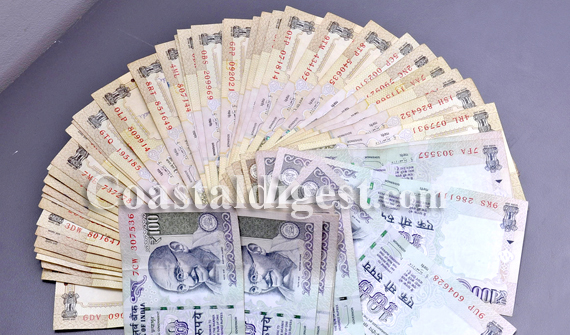
Dubai, Sep 6: The Central Bank of the UAE has asked banks and exchange houses operating in the country to advise their customers travelling to India to abide by the laws on carrying cash to India.
In a notice issued on Tuesday, the Central Bank also asked the banks and money exchangers to warn their customers of the consequences of failing to do so.
“The penalties stipulated in the new law include confiscation of money, prosecution and imprisonment,” the notice said.
It advised the firms that the Indian Central Board of Excise and Customs (CBEC) had implemented a new Law on 22/05/2013, criminalising bringing cash in Indian currency into India.
As per the law, foreign travellers to India are strictly prohibited from carrying cash in Indian currency into India, while Indian nationals are permitted to carry cash not exceeding Rs7,500.
The law also stipulates that all travellers to India must declare all cash in foreign currencies they might be bringing into India, including the UAE dirham, where its value exceeds $5,000. Foreigners should also make a declaration when the aggregate value of all foreign bills in the form of currency notes, financial instruments, travellers’ cheques etc. is equal to or exceeds $10,000, the notice added.
The Central Bank’s move follows another advisory issued by the Indian Embassy in Abu Dhabi in March. The mission advised non-redident Indians staying in the UAE against carrying Indian currency notes when they visit their homeland.
According to the mission, there is a general misconception that NRIs are allowed to carry Indian currency and there had been some instances when NRIs were found carrying large amounts of cash in the form of Indian currency while visiting India and faced problems at the airport.
“In some cases, the currency being carried by NRIs has even been found to be counterfeit,” the Embassy had said.
Its counterpart in Oman had also issued a similar advisory after “cases of counterfeit Indian currency involving Omani visitors” which the mission described as a cause for concern for the Indian government.
When contacted, Indian Ambassador to the UAE M.K. Lokesh denied the Embassy requesting the UAE Central Bank to issue any advisory on the law.
Promoth Manghat, vice-president of global operations at UAE Exchange, confirmed receiving the notice from the Central Bank. “We have already started informing our customers about this law when they come for Indian currency. The new law hasn’t had much of impact in the market.”
A section of the Indian expatriates feels they should also be allowed to carry a minimum amount of cash in Indian currency for emergency use after landing in India. However, officials point out that NRIs can exchange the UAE Dirham or any other foreign currencies with the Indian rupee on arrival in India, where there is a better system to check counterfeit Indian currency.





Comments
Add new comment